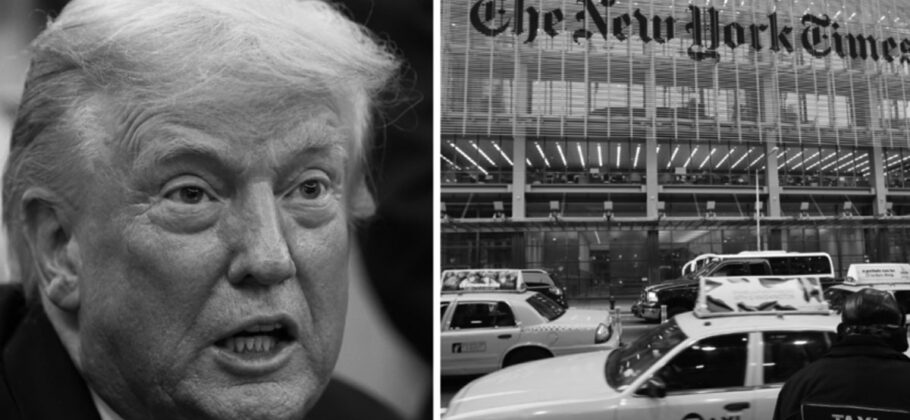The Filing and the Stakes
President Trump has filed a $15 billion defamation and libel lawsuit in the U.S. District Court for the Middle District of Florida. The complaint names The New York Times Company, four Times reporters, and Penguin Random House. Trump’s lawyers say a cluster of Times works harmed him, including an editorial before the 2024 election that said he was unfit for office, multiple reported pieces, and a 2024 book by Times reporters Susanne Craig and Russ Buettner titled Lucky Loser: How Donald Trump Squandered His Father’s Fortune and Created the Illusion of Success. The filing says the defendants “maliciously published the Book and the Articles knowing that these publications were filled with repugnant distortions and fabrications about President Trump,” and that they were released at a moment calculated “to inflict maximum damage” during a consequential election.
What Trump Says The Times Did
The lawsuit argues the Times “is a full-throated mouthpiece of the Democrat Party,” and that it spread “false and defamatory content” about him in the run-up to 2024. It points to several specifics. The suit cites an interview the Times conducted before the election in which retired Gen. John F. Kelly, Trump’s former chief of staff, “warned that he believed Trump met the definition of fascist.” It also objects that the paper credited producer Mark Burnett for the cultural power of The Apprentice rather than Trump, who “served as the show’s host and star.”
On the book Lucky Loser, the complaint says Craig and Buettner “suggested Trump committed a vast tax fraud on his inheritance from his father, denied family members money they were due, and structured his business fraudulently to avoid taxes.” Trump rejects those allegations as false. His lawyers also attack the Times editorial board’s 2024 endorsement of Kamala Harris, calling it an illegal campaign contribution and describing it in the complaint as “deranged.”
The complaint highlights three Times articles, the 2024 editorial endorsement of Harris, and the Craig and Buettner book. It also flags the Kelly interview that used the word “fascist,” and the framing that gave Burnett the credit for The Apprentice. The suit says these works were “carefully crafted by Defendants, with actual malice,” and that they caused reputational and economic harm. Trump’s lawyers sum up their view of the Times this way: “Today, the Times is a full-throated mouthpiece of the Democrat Party.”
Financial Reality For The Times
The materials list The New York Times Company’s 2024 results as follows: revenue of $2.59 billion, net income of $294 million, total assets of $2.84 billion, and total equity of $1.93 billion, with about 5,900 employees. A $15 billion award would be about 5.8 times annual revenue, about 51 times last year’s net income, about 5.3 times total assets, and about 7.8 times total equity. In practical terms, a judgment anywhere near the demand would overwhelm the company’s balance sheet. From the perspective that the Times has been biased for decades and should be held to account, a win of this size could force dramatic outcomes, including a sale, a restructuring, or a change in ownership.
Trump’s Public Case Against The Times
Trump framed the suit on Truth Social as long overdue. “Today, I have the Great Honor of bringing a $15 Billion Dollar Defamation and Libel Lawsuit against The New York Times, one of the worst and most degenerate newspapers in the History of our Country, becoming a virtual ‘mouthpiece’ for the Radical Left Democrat Party,” he wrote. He added, “I view it as the single largest illegal Campaign contribution, EVER,” and said, “The ‘Times’ has engaged in a decades long method of lying about your Favorite President (ME!), my family, business, the America First Movement, MAGA, and our Nation as a whole.”
Later that evening he said the response had been swift and positive. “I am getting amazing feedback on my Lawsuit against The New York Times. The predominant feeling and sentiment is, ‘IT’S ABOUT TIME!’ The case was filed in the Great State of Florida!” He closed his longer post with, “The New York Times has been allowed to freely lie, smear, and defame me for far too long, and that stops, NOW!
Trump’s legal team says the publications inflicted “massive economic damage” to his brand and future prospects. They point to “a precipitous decline in the stock price” of Trump Media and Technology Group as one example of injury. Reporting in the materials notes that TMTG shares have also been under pressure because of worries related to the end of a lock-up period after its market debut.”
NYT Response
The Times rejects the case and its premises. In a statement, a spokesperson said, “It lacks any legitimate legal claims and instead is an attempt to stifle and discourage independent reporting. The New York Times will not be deterred by intimidation tactics. We will continue to pursue the facts without fear or favor and stand up for journalists’ First Amendment right to ask questions on behalf of the American people.” Penguin Random House did not immediately comment in the material provided.
Is There a Pattern?
Trump presents this suit as part of a broader effort to hold media outlets accountable. The filing and coverage reference settlements with other major companies. One account states that “ABC’s parent company, the Walt Disney Co., paid $16 million to settle Trump’s suit over misstatements by anchor George Stephanopoulos.” Another says “CBS’s parent company, Paramount Global, paid the same to settle a lawsuit,” and separate reporting notes the total “could be upwards of $30 million.” Trump has also sued The Wall Street Journal over a report involving Jeffrey Epstein, a case the Journal has promised to fight, and the paper “subsequently published a replica of the signed note, which Trump says is a fake.”
The broader media fight described in the materials includes regulatory pressure and access limits. It says the administration “used its regulatory powers to wrest concessions from television networks,” “blocked mainstream media access to coverage at the White House and the Pentagon,” and “convinced the Republican-led Congress to claw back all federal funding for public media,” described there as “$1.1 billion over the next two years.”
What Trump Might Want Beyond Money
Trump’s recent outcomes suggest he values more than a dollar figure. The materials describe ABC paying millions and issuing “a statement of regret,” and CBS’s parent company settling while pursuing a major merger. They also note that “under new owner David Ellison, CBS parent company Paramount has taken several steps to appease concerns about bias,” including hiring “a news ombudsman with strong conservative credentials.” If this suit moved toward settlement, Trump could seek corrections, clarifications, on-air acknowledgments, and internal processes meant to reduce what he calls partisan framing. He could also press for structural remedies similar to an ombudsman role or editorial standards that his team can point to as reforms.
In his Truth Social post announcing the suit, Trump ties the Times to what he calls a broader media campaign against him and his movement. He writes that he is “PROUD to hold this once respected ‘rag’ responsible,” and points to “our successful litigation against George Slopadopoulos/ABC/Disney, and 60 Minutes/CBS/Paramount,” claiming those outlets “settled for record amounts.” He says this is part of stopping “a decades long method of lying” about him, his family, and “the America First Movement.”
The Times says it will fight and that the case “has no merit.” Trump says he is receiving “amazing feedback.” The legal test for public-figure defamation is high because plaintiffs must show the defendants knew statements were false or had serious doubts about their truth. The materials remind readers that earlier media players settled rather than fight to verdict. Discovery could be contentious if the case advances. If it heads toward settlement, the key question is not only what the number would be, but whether Trump seeks corrections, an apology, and structural reforms that would change how the Times covers him.
FAM Editor: This should be a good ride. Will NYT go out of business? Probably not what anyone wants. Will mass media change? Very likely.
But if we wanted to engage in wishful thinking, perhaps this will become a precedent for suing Facebook and Google so that they stop gaming their systems to censor free speech and to stop their attempts to influence elections.





